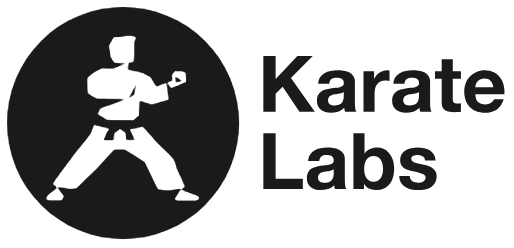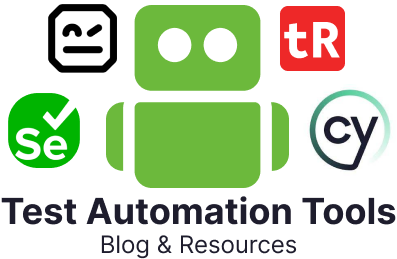
Peter Thomas created the Karate Framework in 2017, a Gherkin-based domain-specific language designed to test APIs, web UI, and desktop UI. This quickly gained traction among software testers and was even recognized by ThoughtWorks Technology Radar as an assessable language/framework of note in April 2019.
The success led Peter to form his own company, KarateLabs, which focused solely on furthering development and support for this popular framework. Intuit, Deutsche Kreditbank AG & KocSistem are some big names who have adopted it into their tech stacks.
What is the Karate Framework?
Karate Framework is an open-source testing tool mainly used to automate and validate backend services exposed through HTTP. It has a Domain Specific Language (DSL) based on Gherkin syntax, which also powers Behaviour Driven Development (BDD). This enables testers to write concise yet descriptive tests focused more on the business logic than implementation details.
One of its key advantages is user-friendliness: even without coding skills, you can start writing your tests, making them accessible across development teams regardless of their programming knowledge or expertise. Plus, the system behavior remains documented in real-time with a self-documenting feature from Gherkin syntax.
All this makes Karate extremely useful in bridging the gap between complexity & ease when testing HTTP API responses such as JSONs & XMLs while providing different options for asserting conditions within these test cases – all at once delivering a smooth setup process with minimal learning curve requirement.
Furthermore, its integration with other Java projects makes it an ideal choice for software development teams looking to optimize their workflows.
Features of the Karate Framework
Domain-Specific Language (DSL) Based on Gherkin: Karate’s user-friendly DSL is heavily inspired by Gherkin, making it easy for anyone to create understandable and succinct tests even those with limited coding knowledge.
API Testing Capabilities: Karate is the perfect tool to assess REST, SOAP, and GraphQL APIs. With Karate, you can effortlessly send requests, process responses, and validate conditions, which is a great way to get an accurate snapshot of your API’s performance.
Web UI Testing: This framework facilitates the automation of web applications, offering a viable alternative to popular tools like Selenium. With this powerful resource at your fingertips, you can enjoy the efficiency and convenience of automating these processes.
Performance Testing Integration: Karate and Gatling have joined forces, giving users the power to test API performance in various conditions. This allows them to gauge how well APIs respond under heavy traffic or other load-related stressors, arming them with crucial insight for making informed decisions about their applications’ capabilities.
Parallel Execution: Running tests concurrently can drastically reduce the time needed to complete testing, making it essential for success in continuous integration settings. This feature is invaluable, allowing us to get results quickly and efficiently.
Data-Driven Testing: Karate empowers data-driven testing, enabling us to run the same test with different data sets and thus improve our overall test coverage.
Visual Testing: This feature gives us confidence that all UI elements will be displayed and operate as expected, giving us the visual validation we need.
Detailed Reporting: This software creates comprehensive reports, making assessing test results easy and seamlessly incorporating them into CI/CD pipelines. This can be incredibly beneficial in terms of furthering data-driven decisions.
Mocking and Test-Doubles: Karate is an invaluable tool for testing purposes in isolated environments; it enables the creation of simulated APIs, providing a practical way to make sure that applications are working as expected.
Cross-Browser Testing: This framework provides comprehensive testing to guarantee that your application is compatible across various web browsers. You can have a seamless experience, no matter what device or platform.
Sample Script Using Karate Framework
Feature: Sample Karate Test Script Scenario: Validate a successful GET request Given url 'https://jsonplaceholder.typicode.com/posts/1' When method get Then status 200 And match response.userId == 1 And match response.id == 1 And match response.title == 'Sample Post Title' And match response.body == 'This is a sample body of the post.'
Where the below keywords specify:
- Given: Mentions API endpoint URL.
- When: Defines the HTTP method (GET in this case).
- Then: Check the response status code to make sure it is 200 (OK).
- And: Various ‘match’ statements validate specific parts of the JSON response, like userId, id, title, and part of the body.
Pros and Cons of Karate Framework
Karate Framework Advantages
- Ease of Use: Karate’s low barrier to entry, requiring little coding, makes it accessible for beginners and non-developers.
- Native JSON Support: It allows JSON expressions directly within feature files, enhancing its effectiveness in API testing.
- Powerful JSON Validation: Offers strong validation capabilities for JSON data structures.
- Flexibility in Coding: Karate supports coding in JavaScript or Java, providing versatility.
- Parallel Execution: Features multi-threaded parallel execution, speeding up the testing process.
- Detailed Logs and Reporting: Provides comprehensive logs and reporting, aiding test analysis.
- Performance Testing Integration: By integrating with the Gatling framework, Karate also supports performance testing.
Karate Framework Disadvantages
- Own Scripting Language: Karate uses its unique scripting language, which might be a barrier for those familiar with other languages.
- No IntelliSense Support in IDE: The lack of IntelliSense support in IDEs can make coding in Karate less intuitive than other languagess.
- Limited Customization and Integration: Karate has pre-built steps and is less flexible in customization and integration with other tools than frameworks like Selenium. This might limit its applicability in certain advanced or specific scenarios.
- Limited Support: Being a newer framework, Karate may not offer the same extensive documentation or third-party support as more established frameworks.
Conclusion
Karate is a powerful tool for software testing. It has the ease, feature set, and assessment to make it a good option for developers and non-developers. API, web UI, or performance tests, Karate helps to make testing more streamlined and effortless. Though it has limited customization & integration capabilities, Karate provides user convenience, comprehensive reporting features, and community support. That makes Karate one of the most popular choices among automation testers today.

